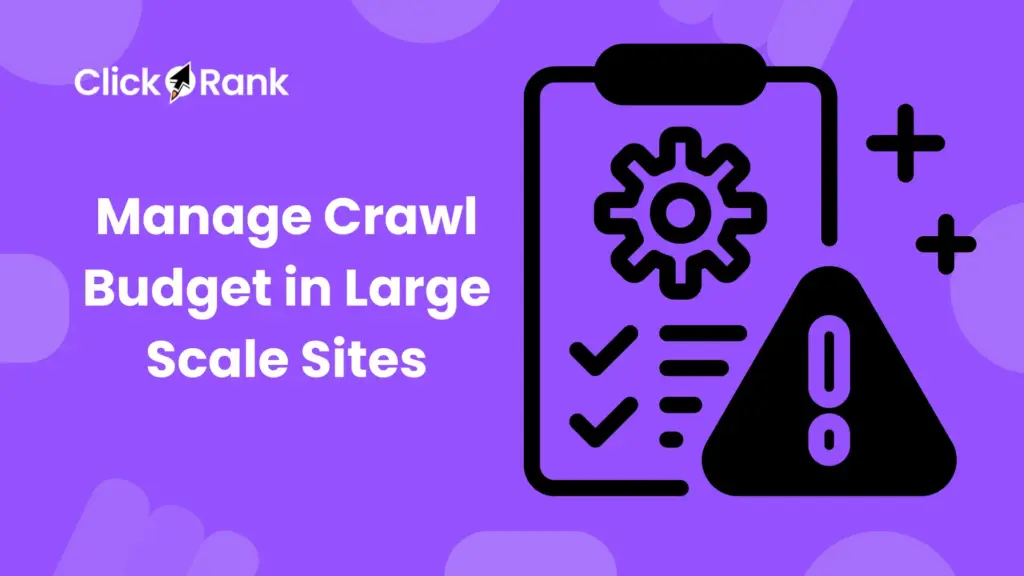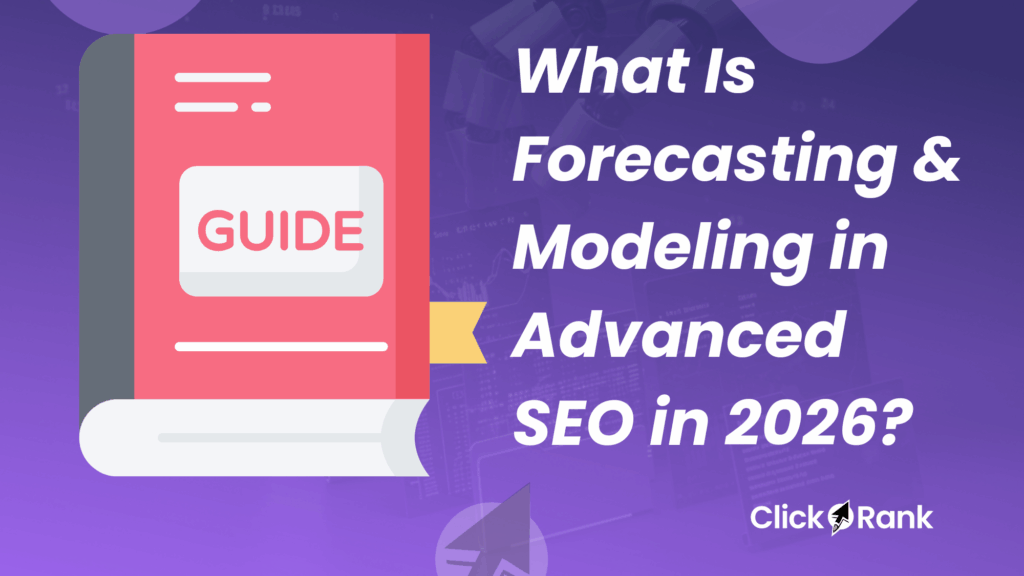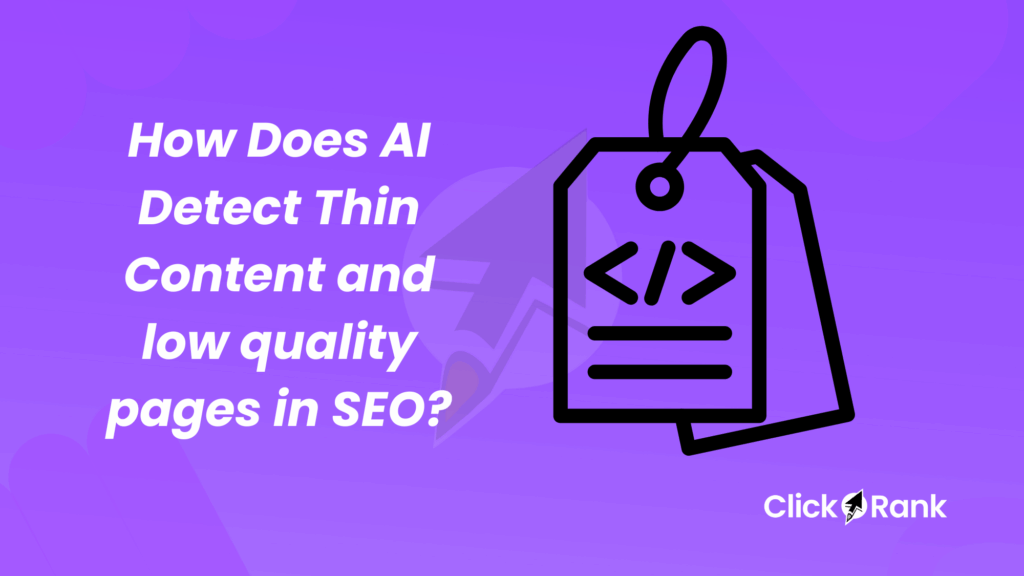What Is the Process of Building an Enterprise SEO Strategy?
Building an Enterprise SEO Strategy is a complex, multi-layered process that requires careful planning, cross-departmental collaboration, and a focus on scalability. Unlike small-scale SEO, enterprise SEO involves managing large websites, often with thousands of pages, multiple languages, and diverse audiences. To succeed, businesses must integrate technical SEO, content strategy, automation, and analytics into a cohesive plan that aligns with overarching business goals.
Why Is Enterprise SEO Strategy Essential for Large Organizations?
Enterprise SEO is essential because large organizations operate at a scale where even minor inefficiencies in search performance can translate into significant lost revenue. An effective Enterprise SEO Strategy ensures:
- Visibility across multiple search engines and regions.
- Consistency in brand messaging and content.
- Optimized site architecture for both users and search engines.
- A foundation for long-term growth and competitive advantage.
For organizations targeting global markets, enterprise SEO isn’t optional—it’s a critical driver of scalable growth and sustainable online authority.
How Does Enterprise SEO Differ from Traditional SEO?
While traditional SEO may focus on a single website or a few pages, Enterprise SEO handles:
- Scale: Managing thousands or millions of URLs.
- Complexity: Multi-site, multi-language, and multi-region management.
- Automation: Leveraging tools to streamline repetitive tasks.
- Data-Driven Strategy: Using advanced analytics for decision-making.
The approach is more strategic, emphasizing long-term growth and alignment with overall business objectives, rather than short-term gains.
What Business Challenges Does Enterprise SEO Solve?
Enterprise SEO addresses key business challenges, including:
- Fragmented content across multiple websites.
- Poor visibility in competitive markets.
- Inefficient internal workflows for content and technical updates.
- Low organic traffic despite large content inventories.
By implementing a structured Enterprise SEO Strategy, businesses can unify their SEO efforts, increase discoverability, and drive measurable revenue growth.
Why Is Scalability a Key Factor in Enterprise SEO?
Scalability is crucial because enterprise websites constantly expand. Without scalable processes, even well-performing SEO strategies become unmanageable. Key considerations for scalable enterprise SEO include:
- Centralized content management systems.
- Automation for repetitive tasks such as reporting, indexing, and monitoring.
- Consistent optimization frameworks for multi-site operations.
Scaling effectively ensures SEO strategies remain efficient and impactful, even as the organization grows.
How Do You Start Building an Enterprise SEO Strategy?
Building an enterprise SEO strategy starts with careful assessment and goal setting. The foundation includes audits, stakeholder alignment, and defining objectives.
What Initial Audits Are Critical for Enterprise SEO?
Initial audits form the backbone of your strategy and should include:
- Technical SEO Audit: Crawl errors, site speed, mobile performance.
- Content Audit: Identify gaps, duplicate content, and high-performing pages.
- Backlink Audit: Evaluate link quality and opportunities for growth.
- Competitor Analysis: Benchmark against industry leaders to identify gaps and opportunities.
These audits help prioritize actions and ensure resources are focused on high-impact initiatives.
How Do You Identify Enterprise-Level SEO Goals?
Enterprise SEO goals must align with broader business objectives. Consider:
- Increasing organic revenue.
- Expanding reach in new markets.
- Improving SERP visibility for high-value product categories.
- Reducing operational inefficiencies through automation.
Clearly defined goals ensure all SEO activities contribute measurable value.
What Stakeholders Should Be Involved in Strategy Development?
Building an Enterprise SEO Strategy requires collaboration across teams:
- Marketing and content teams for strategy alignment.
- Development teams for technical implementation.
- Product managers for prioritization of SEO opportunities.
- Executives for resource allocation and strategic guidance.
A cross-functional approach guarantees smooth execution and scalability.
What Are the Core Elements of an Enterprise SEO Framework?
A robust framework integrates multiple aspects of SEO, including technical, content, and automation elements.
How Should You Approach Keyword Research at Scale?
Keyword research at the enterprise level must:
- Identify high-value, long-tail, and localized keywords.
- Group keywords into thematic clusters for content creation.
- Use automation tools for ongoing keyword discovery and tracking.
Scaling keyword research ensures consistent targeting across all markets and product lines.
What Role Does Technical SEO Play in Enterprise Strategy?
Technical SEO is the backbone of enterprise SEO:
- Optimized site architecture ensures crawlability and indexation.
- Structured data and schema improve SERP visibility.
- Speed optimization enhances user experience and ranking.
Neglecting technical SEO at scale can result in lost rankings and inefficient indexing.
How Do You Create Content That Scales Globally?
Content scalability requires:
- Modular content structures for reuse across pages and regions.
- Localized and culturally relevant content for international audiences.
- Automated content distribution systems for consistency.
By planning content with scalability in mind, enterprises maintain quality while covering multiple markets.
What Is the Role of Automation in Enterprise SEO?
Automation increases efficiency by:
- Streamlining reporting and analytics.
- Automating indexation and internal linking.
- Monitoring technical issues proactively.
Leveraging AI and automation tools reduces manual effort and ensures consistent results at scale.
How Do Internal Linking Structures Impact Enterprise SEO?
Internal linking in enterprise websites:
- Enhances crawl efficiency and indexation.
- Distributes link equity to high-priority pages.
- Improves user navigation and engagement.
Strategically designed internal linking is critical for large websites with complex hierarchies.
How Do You Manage Technical SEO at the Enterprise Level?
Technical SEO management ensures smooth operation of massive websites and supports scaling strategies.
Why Is Site Architecture Crucial for Enterprise SEO?
Site architecture impacts SEO by:
- Simplifying crawl paths for search engines.
- Organizing content logically for users.
- Supporting multi-region and multi-language operations.
A well-structured site architecture is foundational for enterprise SEO success.
How Do You Optimize Crawl Budget for Large Websites?
Crawl budget optimization involves:
- Prioritizing high-value pages for indexing.
- Reducing duplicate and thin content.
- Implementing proper robots.txt rules and canonicalization.
Efficient crawl budget management ensures search engines index the right content consistently.
What Are the Best Practices for Managing Duplicate Content?
Duplicate content management includes:
- Using canonical tags to indicate preferred URLs.
- Regular audits to identify and remove duplicates.
- Structured URL hierarchies to prevent unintentional duplication.
Effective duplication management protects rankings and strengthens SEO equity.
How Should You Handle Multi-Language and Multi-Region SEO?
Multi-language and multi-region SEO requires:
- hreflang implementation for language and location targeting.
- Localized keyword research.
- Tailored content strategies for cultural relevance.
Properly executed, this approach expands global visibility and reduces indexing errors.
How Can Content Strategy Support Enterprise SEO Success?
Content strategy drives organic growth and enhances authority in competitive markets.
What Content Formats Perform Best in Enterprise SEO?
High-performing formats include:
- Long-form guides and pillar content.
- Video and interactive content for engagement.
- Case studies, whitepapers, and research reports.
Diversifying formats ensures maximum reach and SEO impact.
How Do You Build Topic Clusters for Advanced SEO?
Topic clusters involve:
- Creating a central pillar page covering a broad subject.
- Linking cluster pages around specific subtopics.
- Ensuring internal links enhance topical authority.
Clusters improve keyword targeting and reinforce domain expertise.
How Should You Scale Content Localization for Global Markets?
Scaling content localization includes:
- Translating content with cultural adaptation, not just language.
- Centralizing workflows to maintain quality.
- Using translation management and automation tools for efficiency.
This ensures global relevance while maintaining consistent brand voice.
What Is the Role of E-E-A-T in Enterprise Content Strategy?
Expertise, Experience, Authoritativeness, and Trustworthiness (E-E-A-T) influence rankings significantly:
- Highlight industry expertise and credentials.
- Ensure accurate, high-quality information.
- Build authority through backlinks and citations.
Strong E-E-A-T signals boost trust with both users and search engines.
What Tools and Technologies Are Best for Enterprise SEO?
The right tools improve efficiency, reporting, and execution at scale.
Which Platforms Support Enterprise-Level Keyword Tracking?
Top platforms include:
- SEMrush and Ahrefs for keyword tracking at scale.
- BrightEdge and Conductor for enterprise-specific insights.
- Google Search Console for real-time performance monitoring.
These tools enable strategic decision-making and performance monitoring, and of course you can Scale Your Enterprise SEO With AI Automation by clickrank, try it now..

How Can AI Tools Enhance Enterprise SEO Execution?
AI tools can:
- Generate content ideas and optimize copy.
- Detect technical SEO issues.
- Predict trends and suggest opportunities for growth.
Integrating AI reduces manual effort and supports advanced SEO practices.
What Reporting and Analytics Tools Are Critical?
Critical tools include:
- Google Analytics for traffic and engagement metrics.
- Data Studio or Tableau for visualization and dashboards.
- Enterprise SEO platforms for keyword and backlink monitoring.
Accurate reporting ensures strategy adjustments are data-driven.
How Do Enterprise Teams Use SEO Automation Software?
Automation software helps by:
- Scheduling content publication.
- Monitoring technical errors.
- Automating internal linking and indexation workflows.
Automation frees teams to focus on high-impact strategic tasks.
How Do You Align Enterprise SEO with Business Objectives?
Enterprise SEO must directly support measurable business goals to justify investment.
How Does SEO Impact Brand Visibility and Authority?
SEO increases brand visibility by:
- Ranking prominently for high-value keywords.
- Enhancing user trust through authoritative content.
- Expanding reach across regions and languages.
A strong SEO presence strengthens brand credibility and market influence.
What Is the Role of SEO in Demand Generation?
SEO contributes to demand generation by:
- Driving qualified traffic to product pages.
- Supporting content marketing campaigns.
- Creating organic funnels that convert leads into customers.
It integrates seamlessly with broader marketing strategies.
How Can SEO Support Product Launches at Scale?
Enterprise SEO supports launches by:
- Preparing optimized landing pages before launch.
- Coordinating multi-region keyword targeting.
- Leveraging internal linking and content promotion to boost discoverability.
This ensures new products gain traction quickly in search results.
How Do You Demonstrate ROI from Enterprise SEO?
ROI can be demonstrated by tracking:
- Organic traffic growth.
- Conversions and revenue from SEO-driven visitors.
- Improvements in rankings for strategic keywords.
Transparent reporting validates the impact of enterprise SEO investment.
How Should Enterprise SEO Teams Be Structured?
Team structure is vital for efficiency and cross-functional collaboration.
What Roles Are Essential in an Enterprise SEO Team?
Key roles include:
- SEO Manager/Director.
- Technical SEO Specialist.
- Content Strategist and Writers.
- Data Analysts and Automation Specialists.
Each role ensures comprehensive coverage of strategy, execution, and measurement.
How Do In-House Teams and Agencies Collaborate?
Collaboration includes:
- Defining clear responsibilities for internal and external teams.
- Using centralized platforms for project tracking.
- Regular alignment meetings for strategy updates.
Effective collaboration leverages external expertise while maintaining internal control.
How Should Communication Between SEO and Development Teams Work?
Best practices include:
- Integrating SEO requirements into sprint planning.
- Maintaining shared documentation for technical and content tasks.
- Establishing quick escalation paths for critical issues.
Clear communication ensures SEO goals are implemented efficiently without blocking development workflows.
What Are the Biggest Challenges in Building Enterprise SEO Strategy?
The biggest challenges in building an enterprise SEO strategy include:
- Organizational Silos: Lack of coordination between marketing, development, and content teams slows implementation.
- Complex Site Structures: Large websites make crawl optimization and internal linking difficult.
- Frequent Redesigns & Migrations: Risk of losing rankings or link equity during changes.
- Scalability Issues: Applying SEO consistently across thousands of pages and multiple regions is challenging.
- Resource Allocation: Ensuring enough skilled personnel, tools, and budget for long-term strategy.
- Change Management: Aligning all stakeholders to adopt SEO best practices.
- Data & Analytics Complexity: Tracking KPIs, ROI, and performance across vast sites and campaigns.
Enterprise SEO requires meticulous planning, cross-team collaboration, and continuous monitoring to overcome these obstacles.
How Do You Overcome Organizational Silos in SEO Execution?
Overcoming silos involves:
- Creating cross-departmental task forces.
- Aligning KPIs across teams.
- Promoting a shared vision for SEO success.
Collaboration ensures strategy is executed effectively across all departments.
What Strategies Work for Managing SEO Across Multiple Websites?
Strategies include:
- Centralizing tracking and reporting.
- Standardizing technical SEO and content guidelines.
- Prioritizing high-value domains for optimization.
Consistency across sites maximizes efficiency and search performance.
How Do You Handle Frequent Website Redesigns and Migrations?
Best practices include:
- Conducting pre- and post-migration audits.
- Mapping redirects to preserve link equity.
- Monitoring rankings and traffic closely after changes.
A structured approach minimizes disruption to organic search performance.
Why Is Change Management Critical in Enterprise SEO?
Change management ensures:
- Smooth adoption of new SEO processes.
- Alignment between teams and leadership.
- Continuity of performance during technical or organizational changes.
It safeguards long-term enterprise SEO success.
How Do You Measure the Success of an Enterprise SEO Strategy?
Metrics and KPIs guide strategic decisions and validate performance.
What Key Performance Indicators Should Enterprises Track?
KPIs include:
- Organic traffic and engagement.
- Keyword rankings and SERP visibility.
- Conversion rate from organic channels.
- Backlink quality and authority metrics.
Tracking these ensures SEO contributes measurable business value.
How Do You Measure Organic Growth at Scale?
Measure growth by:
- Comparing traffic and ranking trends across regions.
- Monitoring indexed pages and crawl efficiency.
- Evaluating user engagement metrics across multiple domains.
Data-driven insights help refine enterprise SEO strategies.
What Metrics Demonstrate ROI to Executives?
Metrics that resonate with executives include:
- Revenue from organic search.
- Cost savings through automation.
- Improvements in brand visibility and market share.
Clear ROI measurement reinforces continued investment in enterprise SEO.
How Can You Benchmark Against Global Competitors?
Benchmarking includes:
- Tracking competitors’ keyword performance.
- Evaluating content quality and backlink strategies.
- Comparing technical SEO efficiency and site performance.
Competitive intelligence informs strategy and identifies new growth opportunities.
What Does the Future of Enterprise SEO Look Like?
Enterprise SEO is evolving rapidly, with technology and user behavior shaping new strategies.
How Will AI and Machine Learning Shape Enterprise SEO?
AI will:
- Automate content creation, optimization, and personalization.
- Predict trends and search patterns.
- Improve technical SEO monitoring and issue detection.
Enterprises adopting AI early gain a competitive advantage.
What Role Will Voice Search Play in Global SEO?
Voice search impacts:
- Long-tail keyword targeting.
- Conversational content optimization.
- Localized and mobile-focused SEO strategies.
Preparation for voice search ensures continued relevance in evolving search behavior.
How Should Enterprises Prepare for Search Algorithm Shifts?
Preparation involves:
- Monitoring algorithm updates proactively.
- Maintaining adaptable SEO processes.
- Prioritizing technical robustness and content quality.
Flexibility allows enterprises to respond quickly to search engine changes.
Why Is Continuous Innovation Important in Enterprise SEO?
Continuous innovation ensures:
- Sustained competitive advantage.
- Adoption of emerging technologies and strategies.
- Long-term growth in organic visibility and revenue.
Enterprise SEO is never static—staying ahead requires constant improvement.
Mastering Enterprise SEO requires a strategic approach that blends technical precision, content excellence, and scalable processes. By implementing a well-structured Enterprise SEO Strategy, organizations can achieve measurable growth, global visibility, and long-term competitive advantage.
For more advanced insights and actionable strategies to elevate your SEO at scale, visit clickrank.ai and start transforming your SEO outcomes today.
What is the difference between enterprise SEO and advanced SEO?
Enterprise SEO focuses on large-scale, complex websites with multiple teams and regions, while advanced SEO applies sophisticated techniques like semantic optimization, structured data, and AI integration, regardless of site size.
How long does it take to build an effective enterprise SEO strategy?
Typically 3–6 months for initial implementation, with ongoing optimization taking 12–18 months for measurable results.
What industries benefit most from enterprise SEO?
E-commerce, SaaS, travel, finance, healthcare, publishing, and multinational corporations benefit the most due to scale and competition.
Can enterprise SEO strategies work for e-commerce at scale?
Yes. Enterprise SEO supports large catalogs, structured product pages, and multi-region targeting for scalable e-commerce growth.
How do global enterprises manage SEO for multiple languages?
Through hreflang implementation, localized content, region-specific keywords, and coordinated international site architecture.
What is the role of content automation in enterprise SEO?
Content automation streamlines creation, scaling, and optimization while maintaining consistency across large, multi-language sites.
How do enterprises measure the ROI of SEO campaigns?
By tracking organic traffic, conversions, revenue, keyword rankings, and domain authority over time.
Why do large organizations need dedicated enterprise SEO teams?
To manage complex site structures, coordinate across departments, implement scalable strategies, and maintain consistent SEO performance.
What technical SEO issues are most common in enterprise websites?
Duplicate content, crawl inefficiencies, slow page speed, broken links, and incorrect hreflang or schema markup.
How does enterprise SEO integrate with paid search campaigns?
SEO insights guide paid keyword targeting, while paid campaigns support content promotion, brand awareness, and conversion tracking synergy.


